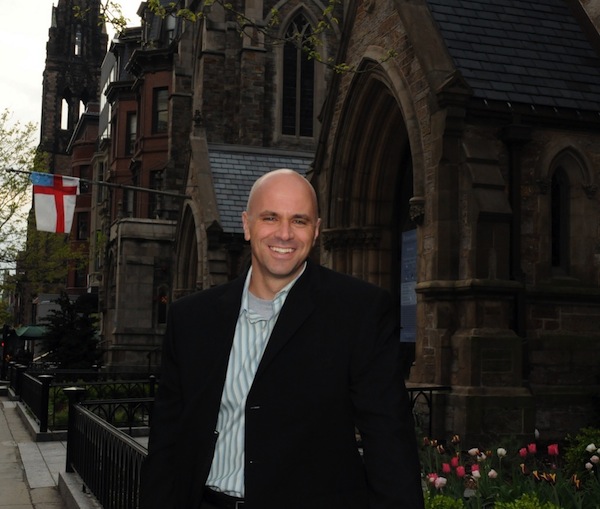Emmanuel Music serves up robust and illuminating Bach for the Christmas season
Emmanuel Music knows how to make Bach’s music dance.
The organization’s performance Saturday night of the Christmas Oratorio served up Bach’s music with plenty of gusto and schwung. Presented at Emmanuel Church, the performance was often thrilling and always touching.
Written for the Christmas season in 1734, the Christmas Oratorio is one of Bach’s more idiosyncratic spiritual works. The score draws on (or parodies) earlier Bach music, in particular three secular cantatas and a now-lost church cantata, with texts that trace the six feast days between Christmas and Epiphany. At nearly three hours in duration, the Christmas Oratorio is a sprawling work, but one that’s filled with variety, expressive moments and lovely touches throughout its six sections.
Emmanuel’s artistic director Ryan Turner deserves much credit for the success of the evening. Throughout Saturday’s concert, the music was full of momentum, and not just rhythmically; this was a performance in which the melodic line always moved with purpose, regardless of expressive context.
The jubilant choral introductions – beginning with the famous “Jauchzet, frohlocket” of the opening cantata and concluding with the more expressively complex “Herr, wenn die stolzen Feinde schnauben” of the last – tripped along with lithe energy. So did the arias, from Margaret Lias’s lilting “Bereite dich, Zion” to Kendra Colton’s charming “Flößt, mein Heiland” (with Sarah Yanovich’s gentle off-stage echoes). to Charles Blandy’s turbulent “Nun mögt ihr stolzen Feinde, schrecken.”
All of the vocal contributions – ensemble and solo – were handled by the Emmanuel Music chorus. The best of the night’s solo efforts were, likewise, strong and robust.
Jonas Budris’s Evangelist was superb—tonally refined, perfectly in tune, and evenly balanced in every register. His high notes were voiced with particularly effortless clarity.
Krista River’s “Schlafe, mein Liebster,” in the second cantata, offered demonstrations of terrific vocal control as well as a deep, emotional connection to the text. So, in rather different expressive situations, did bass David Tinervia’s appearances in his duet with the choir and the aria, “Erleucht auch meine finstre Sinnen.” Frank Kelley’s machine-gun-burst melismas in the second half of “Frohe Hirten” came across as a marvel of precision and attack. And Kristen Watson and Dana Whiteside sang tenderly in their duet, an ode to God’s mercies.
As a group, the Emanuel Music ensemble sang with warm tone, excellent diction, and conspicuously fine articulations of the cantatas’ German texts. Their approaches to each of the choral movements were thoughtfully varied, ranging from the radiant (“Brich an, o schönes Morgenlicht”) and inward (“Schaut hin”) to the striking alterations between light and shade (“Herr, wenn die stolzen Feinde schnauben” and “Nun seid ihr wohl gerochen”). The blend across the choir’s sections was smooth, their textures clean, and their intonation was, throughout the night, solid.
The purely orchestral episodes were likewise executed with brilliant command and subtle tonal shadings. Turner drew sensitive playing from the ensemble. His reading of the second cantata’s sinfonia, for instance, was pure magic: precisely executed, marked by aching suspensions, keen attention to dynamics, and a strong sense of the music’s architecture and harmonic progressions. The orchestra’s brass section navigated their parts in the brightest of those movements with golden tone. Michael Beattie’s organ anchored the continuo with vigor and warmth.
The cantatas’ instrumental solos were dispatched with similar attention to detail. Concertmaster Heidi Braun-Hill turned in a series of shapely solos, including a mini-double-violin concerto energetically shared with Danielle Maddon. Peggy Pearson played the several oboe and oboe d’amore solos with dulcet warmth; her duets on the latter instrument with Jennifer Slowik in the third and sixth cantatas were particularly plangent and melancholy.
Saturday’s performance overall was robust and invigorating, a thoughtful and energetic celebration of the season and an illuminating performance of an idiosyncratic, often theatrical score.
Posted in Performances
